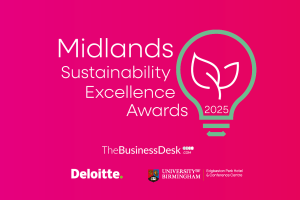Sustainability – it’s not easy – but it’s worth the investment

We’ve all heard the narrative “we have to make our businesses more “sustainable”– whether it’s, as we say at Freeths, “Doing the Right Thing” or being driven by our stakeholders, clients, the businesses in our sales pipeline, employees, the future employees we’ll want to hire, investors, bankers or insurers. But what does it really mean and what do we have to do?
No one size fits all answer
Big businesses have sustainability directors and some even have Net Zero managers. They’ve been on this journey for years and are well down the track of having a “sustainable business” and the ones doing it well have merged their Sustainability Plan with their Business Plan. If that’s not where you are, you may find yourself being bombarded by “Net Zero, Sustainability or ESG consultants” offering you services and making you feel like you’re the last ones to the party. Firstly, you’re not. Freeths (itself on its Net Zero journey) has helped many clients of all sizes and aspirations implement their “Net Zero” and wider sustainability plans.
So, having helped a lot of businesses on this journey, what have we learned?
1. Forget that you have an option – This isn’t optional. You have to make your business more sustainable, or you won’t be competitive and desirable in your sector. In every tender we are invited to submit, we’re scored on our sustainability credentials. Not having any will put you at a disadvantage against your competitors.
2. Build a collaborative team – Find out which of your staff have a passion for sustainability and ask them to lead BUT, they can’t achieve anything unless there is clear buy-in from the most senior members of your organisation.
3. Beware of setting meaningless targets – If you review many West Midlands businesses’ websites, they’ll have set “Net Zero” targets – invariably set by their marketing department to meet expectations of investors and clients. However, they may not meet the standard of the Science Based Target initiative (SBTi), whose aim is to ensure that companies’ “Net Zero” targets translate into action that is consistent with achieving a “Net Zero” world by no later
than 2050.
4. Find an expert to help – Run a Request for Proposal (RFP) to find a consultant to help measure your carbon (and other emissions) footprint. They will tell you what your emissions hotspots are. For us, as a professional services firm, it’s offices (heat, gas, and electricity), IT and travel. Choose consultants who have worked with businesses in your industry before – so that you’re not being used as a test case.
5. Get a baseline report – Your consultant will provide your first carbon footprint report to give you a baseline from which to establish your SBTi and a realistic timescale for achieving “Net Zero”. They can help create a “Net Zero” plan to identify your emissions hot spots and a method of monitoring and reporting on them.
6. Easy wins?
6.1. Switch to renewable tariffs – BUT, be careful of the “Greenwashers”: if you switch to a renewable tariff, is it truly renewable? It’s only an easy win if you’re in control of who you get your gas/electricity and heat from. If you’re the leaseholder, you may have to work hard to get your landlord to switch.
6.2. Waste – it’s not sexy but it is part of the sustainability journey. Waste reduction and waste re-use could make a big difference to your carbon footprint. The manufacturing process often contributes 50% of the carbon footprint of any product. Waste reduction could also save you money which leads to the next big point:
7. Sustainability can save you money – i.e., it can be an opportunity in more ways than one. One example is “Purpose with Profit”. In accordance with the growing importance in our legislation of the “polluter pays” principle, if you produce or import goods, you will now be responsible for the packaging that you place on the UK market as mapped out in the Plastic Packaging Tax and Extended Producer Responsibility for Packaging.
By reducing the packaging (or working with your suppliers to reduce packaging) you can reduce your initial costs plus reduce the tax bill and pEPR contribution. If you can’t reduce, increasing the recycled content will reduce your costs. Speak to your suppliers now to see what they can do to help you (all their customers will be having the same conversations with them) and if you can, put clauses in your supply chain contracts to oblige your suppliers to provide you with the data you need to report on sustainability issues and achieve your net-zero targets.
So let us help you
Freeths has advised many clients on their sustainability journey including updating supply chain documents to oblige suppliers to help them, patenting new sustainable products and methods of manufacture, advising on Greenwashing, solar farm projects, projects to capture and use heat, and projects for grid size battery installation.
Author
Kirstin Roberts MCIWM
Director
Freeths
Kirstin Roberts MCIWM | Director | Waste & Renewables | Freeths









